Conversation #2: Alejandro Escovedo
19 years after our first talk, a discussion about music influences, 9/11 and the term Americana
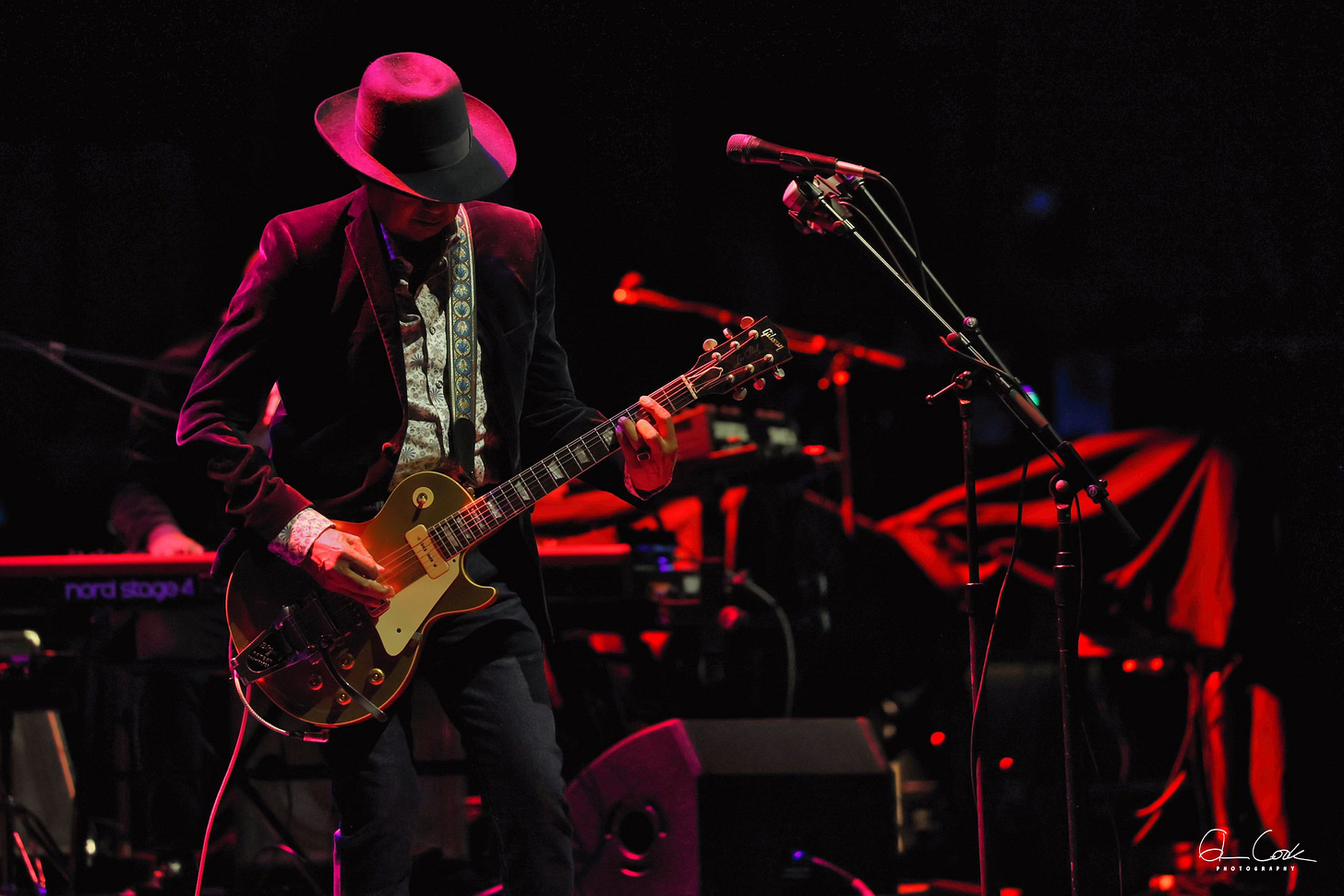
As Alejandro Escovedo sat in a van, riding from Pittsburgh to Virginia on the anniversary of the 9/11 attacks, he thought back to that day and how close he almost was to the airplane that struck the Pentagon.
“It’s crazy,” Escovedo said via phone as the van maneuvered the Pennsylvania Turnpike en route to the Wolf Trap Center for the Performing Arts, where he opened Wednesday for Jason Isbell & The 400 Unit on the anniversary of the terrorist attacks. “We were supposed to be playing the Iota (a since closed club in Arlington, Va.) that night, and we always stayed at the hotel that overlooked the Pentagon. It was right in the flight path of that plane.”
But Escovedo and his band had “been on tour forever” and he decided to cancel the Iota gig that night because everyone was burned out.
“I cancelled the tour, actually, and we went home. But had we not, we would have been there that day. It really is crazy.”
Twenty-three years later, and almost two decades after a near-death experience due to complications from hepatitis C, the 73-year-old Escovedo is grateful to be healthy and on the road again. The opening dates for Isbell, which run through the end of September, are an opportunity to showcase Echo Dancing, a radical recasting of 14 songs from his half century career.
The album, his first on Yep Roc Records, was recorded in Italy and released this spring to strong reviews. It is a diverse yet cohesive overview of Escovedo’s body of work, recast with drum machines and synthesizers, with songs dating back to the True Believers, the mid-1980s band that was one of the strongest live acts in Austin’s fertile roots rock scene.
Escovedo played several songs from the album during his 45-minute opening set Wednesday, including radical recastings of “John Conquest,” “Sacramento and Polk,” and “Bury Me.” He dedicated “Sensitive Boys” to the those lost on 9/11 and moved away from the album’s arrangements to bring the house to its feet with two of his best known songs — “Castanets” (performed in Spanish on “Echo Dancing”) and a personal favorite, “Break This Time.”
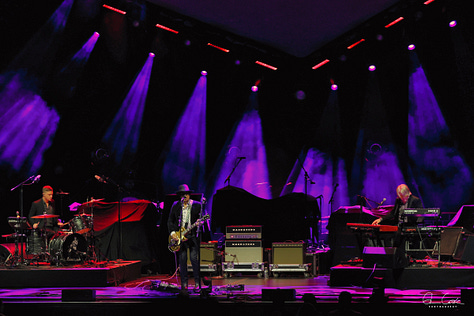
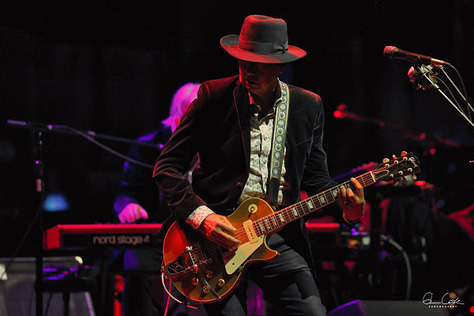
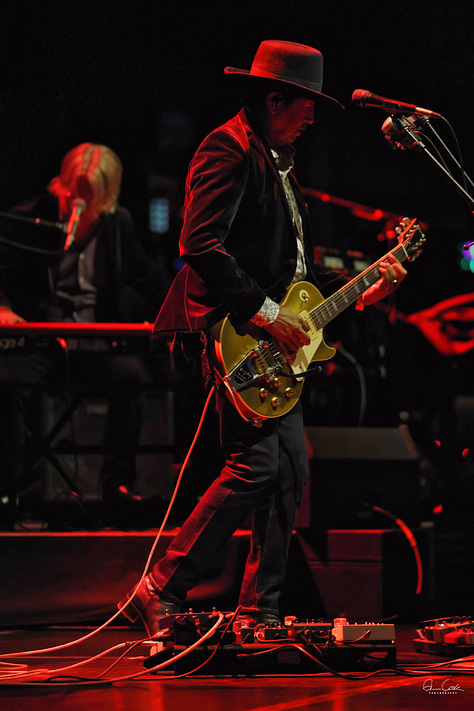
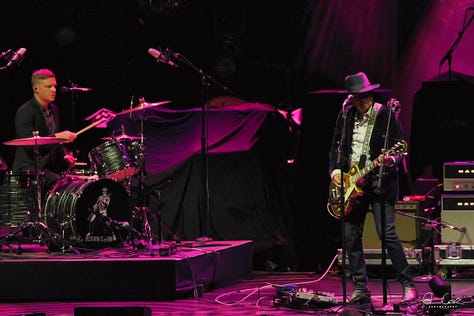
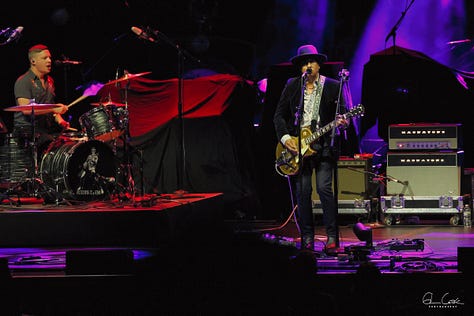
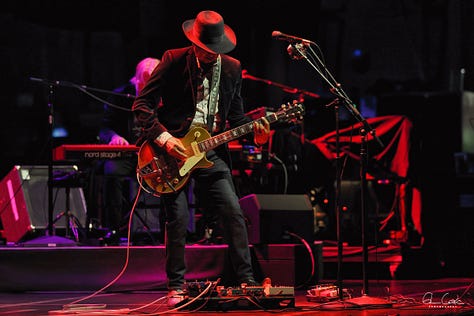
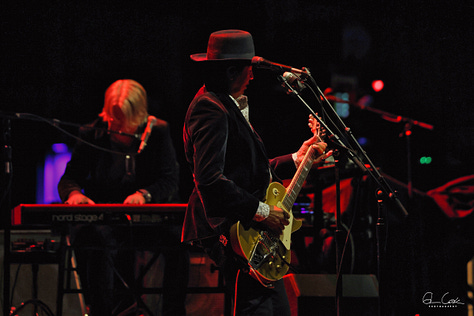

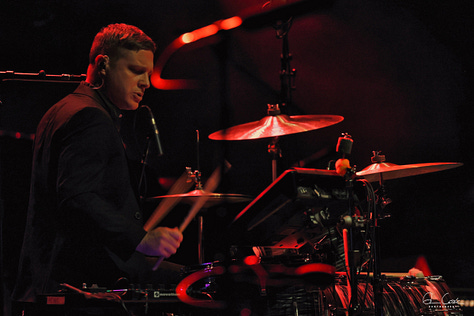
My first exposure to Escovedo was during the True Believers era at a mid 1980s show in Houston. In early 2005, I interviewed him early on during his recovery. It was a pleasure to speak to him again this week, this time in more depth about his music influences, creativity, and the future.
Here are excerpts from the conversation, lightly edited for brevity and clarity.
One thing I’ve always appreciated about your music is your willingness to explore different genres — from punk to rock to glam to roots rock to music for the theater. Now you’re using drum machines and synths with “Echo Dancing.” What has driven you to move in all of these different directions?
I’ve always said it was due to having a vast record collection. I was born in 1951, so I heard early rock and roll, and I grew up collecting records, basically from the early ‘60s through the ‘70s. My dad loved rock and roll. My mom loved big band music. And my brothers were Latin jazz percussionists. So, through them, I had access to all sorts of different styles of music that were of interest.
And, when I grew up, radio was so much more diverse. You heard everything from Captain Beefheart to Marvin Gaye to Flaco Jimenez to Jimi Hendrix or whatever was out at the time. So there was a wonderful world of music that encompassed all sorts of styles.
My family, especially my grandmother, introduced me both to music and to the joy you find when seeking out something new. She always urged me to listen to the people that other musicians mentioned.
That was the other beautiful thing about when I grew up. You just kind of got all these clues from different people, whether it was Keith Richards talking about Skip James or Blind Willie Johnson, or Ry Cooder bringing in conjunto and ranchera music into his style. There were all of these little things that you could find, and you’d follow these breadcrumbs through record stores and libraries looking for this music. It was a really beautiful thing to discover on your own.
I still love liner notes. It’s how I used to find other musicians to become interested in, especially when radio started going downhill.
DJ's used to really kind of educate us too and talk about the artist and where the record came from, where they came from. All of that information was very valuable. Now it's just programmed, so it's very different. Very different.
The new album is really terrific, but given the aural complexities, how is it playing this material live?
We’ve gotten a really good response to the record. The audiences have been very receptive, But tonight, you know, we're playing for an audience that’s there to see Jason, so in the set we cover a lot of different things. There's a little bit for everybody.
I’ve spoken to artists before about the difference between being the headliner and the special guest/opener. Some say it’s difficult to play for such a short period, that by the time you get going you’re done. Is that the case with you?
We're actually doing 45 minutes, so that's a healthy amount of time. The only drawback for me is that our sets are usually a couple of hours at least, and I also spend a lot of the time talking about the material, telling stories, and conversing with the audience in that way. I get a little time to do that, but not a lot. It really does move song to song to song.
But his audience is such a music loving audience that it's really great. And that's a beautiful thing about Jason and his band. They’re one of the best I’ve heard in a long time. They’re making real, honest music. It’s just a beautiful thing to watch and I’m really enjoying it.
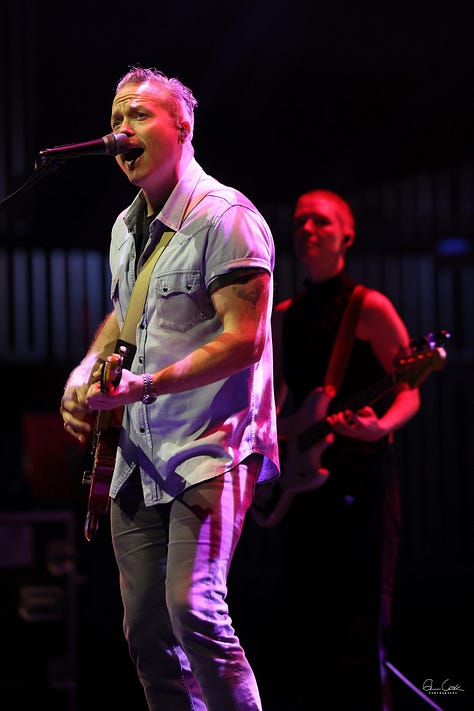
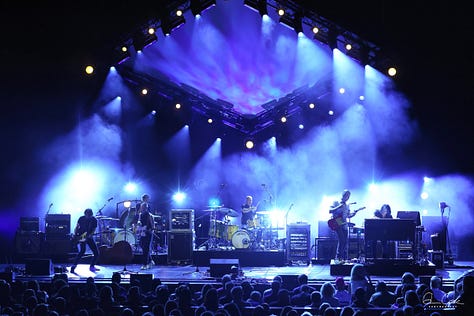
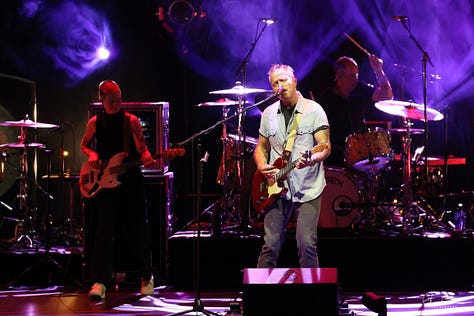
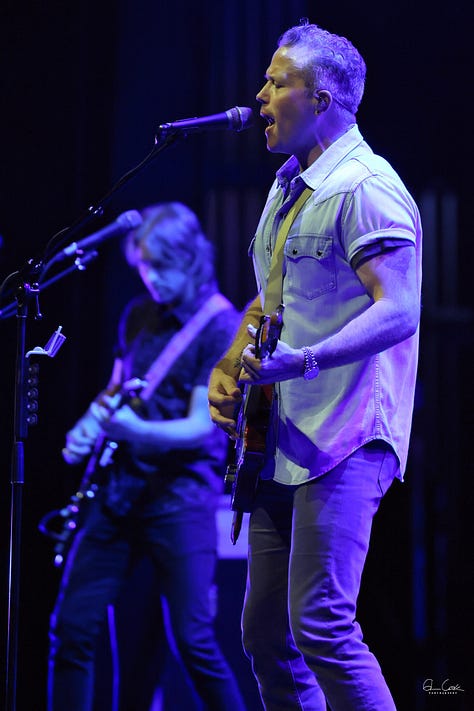
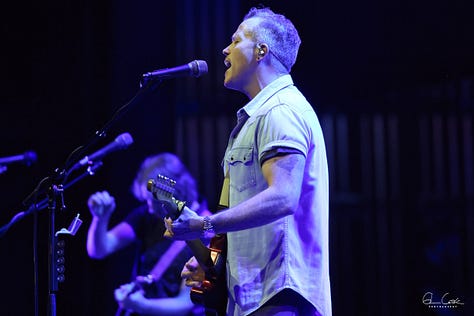
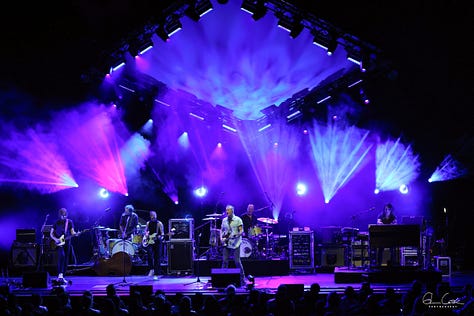
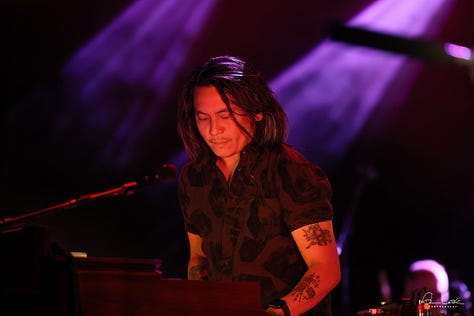
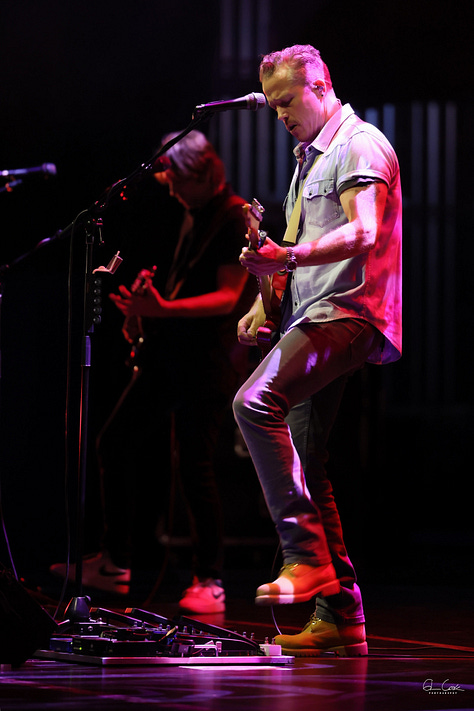
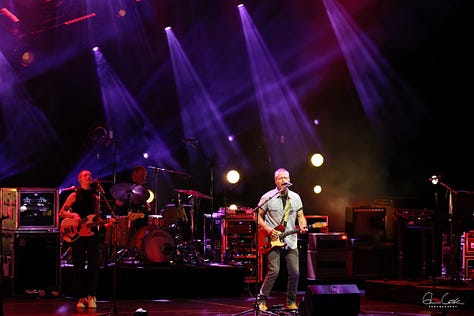
You’re also writing a memoir. How’s that coming along?
We’re getting closer and closer to that being done, and I’m working with a theater group out of Calgary, AB, called One Yellow Rabbit on a one-man performance loosely based on the book. Next year, (wife) Nancy and I are going to Mexico for a couple of months, and I’m going to try and write a new record there.
The last time I interviewed you was in early 2005, soon after the “Por Vida” tribute album came out. You were still very weak (from complications with Hepatitis C), but I remember how gracious you were to speak with me then. Now here we are 20 years later, and you’re in the midst of this incredible second or, given how long you’ve been doing this, third act. I’ve always wanted to ask, how did your illness your outlook or perspective on creativity?
The illness, as frightening as it was and as difficult as it was to get through that mentally and physically and spiritually, also was an opportunity. I learned so much, and I gained so much more focus on my music. I don't take my music for granted, and I don't take my friends for granted. I don't take my family for granted. And I don’t take the mere fact that I am a living, sentient being for granted at all anymore, you know. And that experience also opened a lot of doors for me and brought me a lot of blessings.
Conversations: Alejandro Escovedo
Alejandro Escovedo’s career has spanned five decades and crossed as many genres, from punk and glam rock to alt-country, string quartets, and Spanish language albums about the immigrant experience.
The “Por Vida” tribute album (recorded to raise funds for Escovedo’s health care) is still in my rotation after 20-plus years.
It's a beautiful record, man. And it’s one of those things you don't think about when you're a working musician. You're just getting from gig to gig, trying to give it your best shot every time you go out on the stage. Suddenly, when something happens like it did to me, and so many people come to your aid and support you in that way is very, very humbling and beautiful. I'm just very, very grateful that it happened in that way too.
What interests you about using theater as a form of performance in addition to recording and playing live? (In addition to the one-man show, Escovedo also has performed “By the Hand of the Father,” a musical theater piece about his ancestry, that was written more than two decades ago.)
My songwriting is storytelling really. I just want to tell my story — about my life, about my family, about the life I have lived in this world. Second, I originally wanted to be a filmmaker, so I try to create these little movies within a four-minute song. I enjoy bringing those elements into one form where I can control the lights, the imagery that’s shown behind me while I tell these stories. We can use home movies. We can use voiceover. That’s always been my thing.
Last question. Recently you did an interview with National Public Radio’s World Café and you were asked about the phrase Americana. You said you were not “crazy about the term.” Given that I’m writing this for a publication called Americana Highways, I wanted to ask about that. Why don’t you like the term?
I just don't like that it has become such a caricature of itself. Americana is not just guys with beards playing Civil War songs or that kind of stuff. That really turns me off. Americana to me is a vast and beautiful melting pot of music and cultures, and yet the term has never really encompassed all of that, you know?
I think if it’s the true scope of Americana, you have to include hip hop, you have to include rap, you have to include free jazz, you have to include conjunto. You also have to include music from the cotton field, Appalachian music, and country music of course. I also have a problem if you’re not including the Stooges or the MC5 in Americana. If you don’t, you’re really shutting the door on an incredible world of music and sounds.
I think that music is a language that every human being can speak, and so, you know, American music, Italian music, Mexican music, it's all really the same. It's a way of communicating for us, and the music has been such a beautiful force of energy that has guided us sometimes and consoled us at times and inspired us at times. When we were starting Rank and File, we were listening to as much dub music as we were George Jones, you know. And we would listen to George Benson. We were listening to all sorts of stuff, to get inspired by. I still wanna follow that path, you know.



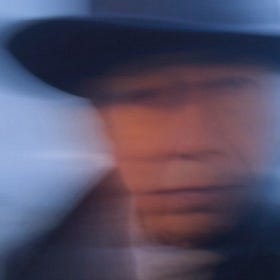
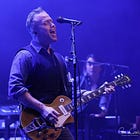
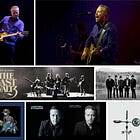
I love Alejandro's definition of Americana completely agree.
https://open.spotify.com/playlist/381CPOTt3SiuMxCwqrHWbB?si=uXgxBmNdRcqbU_HLU5cQSQ
Great piece and amazing photos of a rock legend in my book. I got to film a couple of concerts and an interview with him back in 2000 in San Francisco and he was so down to earth.